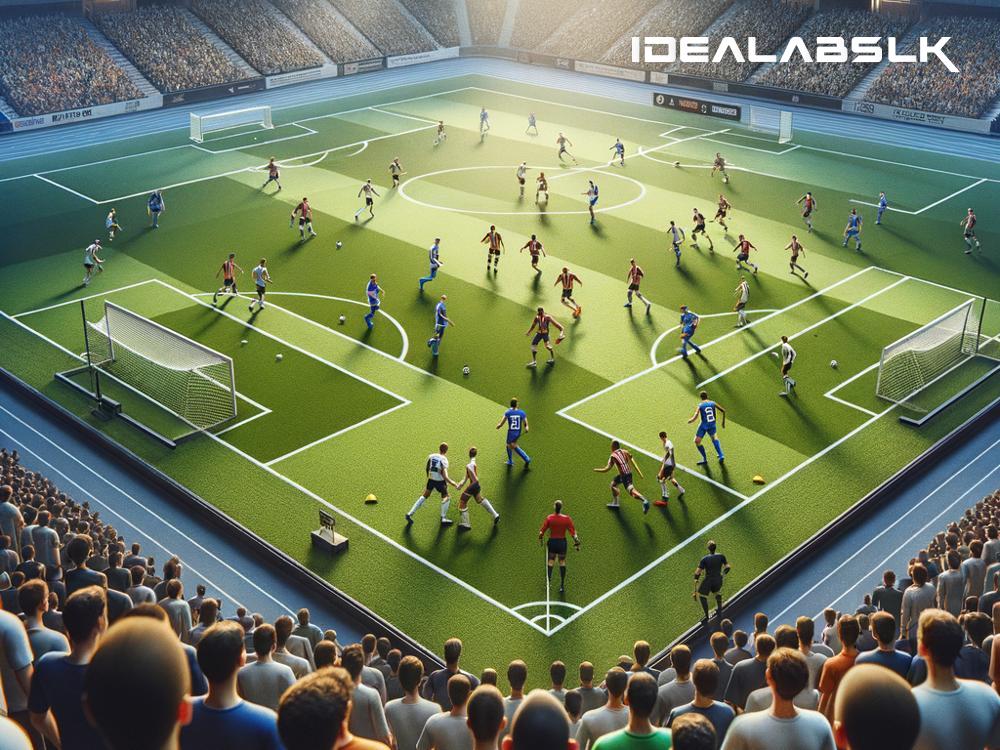The Future of AI in Sports Simulations: Realistic Play and Smarter AI Opponents in 2024
The world of sports simulations is on the brink of a major leap forward, thanks to the wonders of Artificial Intelligence (AI). In 2024, the landscape of video games, especially sports simulations, is expected to undergo transformative changes, bringing players closer to the real action than ever before. This evolution is not just about sharper graphics or smoother gameplay, but about making every match, race, or game feel like you’re living the experience. Let’s dive into the exciting future of AI in sports simulations and how it's going to revolutionize realistic play and smarter AI opponents.
A Leap Towards Realism
Imagine lacing up your boots for a soccer match in FIFA or strapping yourself in for a Formula 1 race in a game, and feeling like you’re really there. This level of realism is what 2024 aims to achieve in sports simulations, driven by AI. The AI in these games is learning how to mimic real-life physics and athlete movements more accurately, making your virtual experience almost indistinguishable from the real world. This means the way the ball curves in the air, how a car responds to wet track conditions, or even how a player might fatigue over time, will all be reflected realistically in the game.
Smarter AI Opponents
For years, gamers have complained about the predictability and lack of challenge when playing against computer-controlled (AI) opponents. However, the future looks bright; AI is about to get a major upgrade. In 2024, expect to see AI opponents who learn from your playing style and adapt over time. These AI players will be able to devise strategies, make unpredictable moves, and maybe even get into your head. This leap will be achieved through advanced machine learning algorithms, which allow the AI to evolve through experience, much like a human player would.
Strategy and Adaptation
One of the most exciting advancements is how AI will start to understand and use strategy in sports simulations. In basketball games, AI teams might change their defensive tactics if you’ve been scoring too much from three-point land. In football games, the AI might start using time-management strategies if it’s leading in the fourth quarter. This level of understanding and adaptation will push players to think more critically and make strategic decisions, elevating the gameplay experience to new heights.
Personalized Challenges
AI technology will also personalize the difficulty and style of play based on how you play. If you’re breezing through matches too easily, the AI might ramp up the challenge to keep you on your toes. Conversely, if you’re struggling, it might dial things back a bit. This dynamic difficulty adjustment ensures a satisfying experience for players of all skill levels, making sports simulations more inclusive and enjoyable for everyone.
Training and Improvement
Another exciting application of AI in sports simulations is the potential for these games to help players improve their real-world skills. With AI capable of detailed analysis, it can provide feedback on your gameplay, suggest areas for improvement, and tailor training exercises to your needs. This could be a game-changer for aspiring athletes or anyone looking to hone their skills in a particular sport.
The Social Aspect
Lastly, AI will even enhance the social aspect of sports simulations. Imagine AI-controlled commentators that react dynamically to the game, analyzing plays and providing insights just like their real-world counterparts. Furthermore, AI could generate realistic crowd reactions, making the atmosphere of a game feel alive and responsive.
Conclusion
As we look towards 2024, the fusion of AI with sports simulations promises to unlock a new realm of realism and immersion. With smarter opponents, adaptive difficulty, and a closer mimicry of real-life physics and strategies, these advancements are set to redefine our concept of virtual sports. The gap between playing a game and living the sport is narrowing, offering gamers around the world the most realistic and engaging experience possible. The future of AI in sports simulations is not just about playing games; it's about experiencing sports in a way that was once only possible in the real world. Welcome to the future of sports simulations, where every play, race, and game is as real as it gets.

